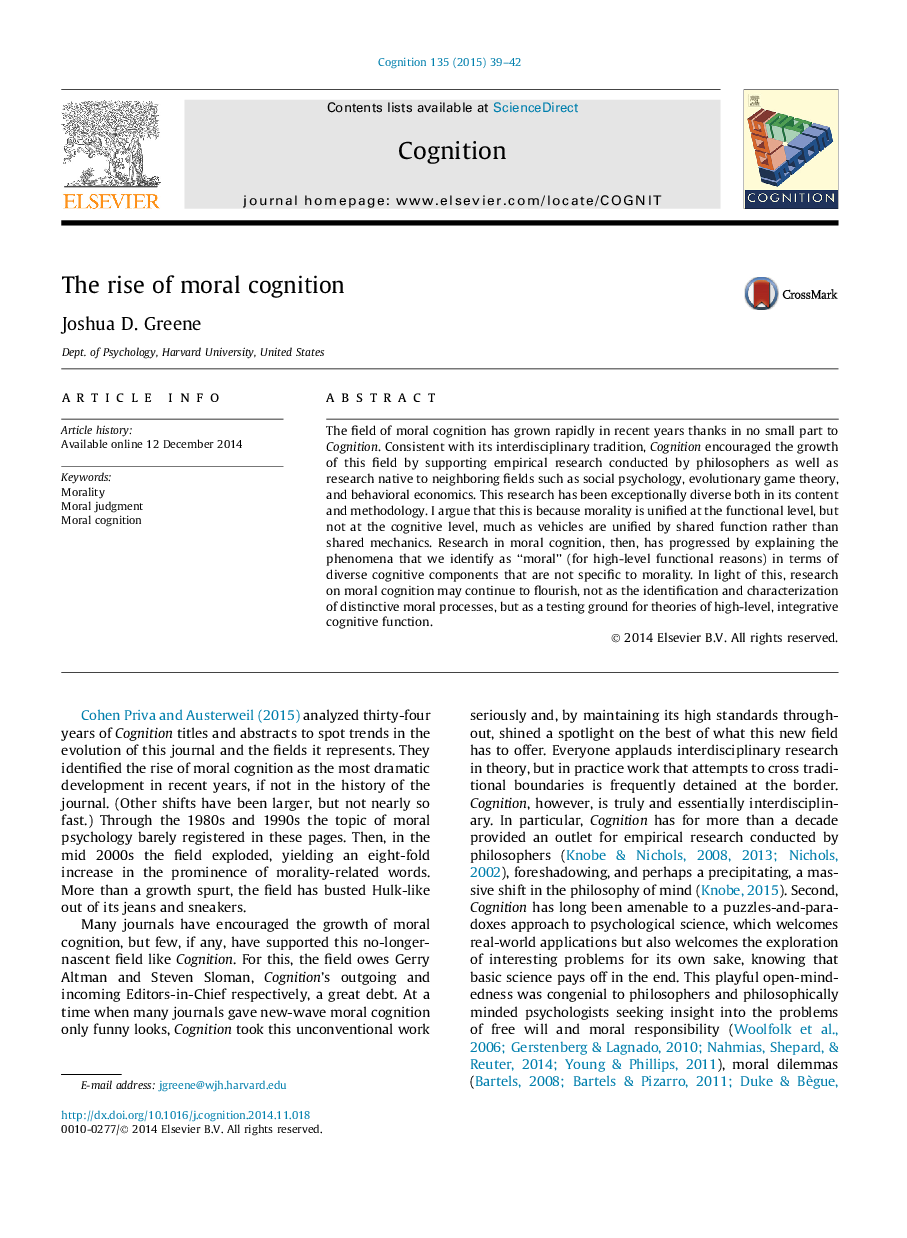| Article ID | Journal | Published Year | Pages | File Type |
|---|---|---|---|---|
| 926348 | Cognition | 2015 | 4 Pages |
•Moral cognition is a diverse field that has grown very rapidly in recent years.•Morality appears to have no distinctive cognitive mechanisms of its own.•Nevertheless, morality appears to be unified at a higher functional level.•Morality appears to be unified by the function of promoting cooperation.
The field of moral cognition has grown rapidly in recent years thanks in no small part to Cognition. Consistent with its interdisciplinary tradition, Cognition encouraged the growth of this field by supporting empirical research conducted by philosophers as well as research native to neighboring fields such as social psychology, evolutionary game theory, and behavioral economics. This research has been exceptionally diverse both in its content and methodology. I argue that this is because morality is unified at the functional level, but not at the cognitive level, much as vehicles are unified by shared function rather than shared mechanics. Research in moral cognition, then, has progressed by explaining the phenomena that we identify as “moral” (for high-level functional reasons) in terms of diverse cognitive components that are not specific to morality. In light of this, research on moral cognition may continue to flourish, not as the identification and characterization of distinctive moral processes, but as a testing ground for theories of high-level, integrative cognitive function.
